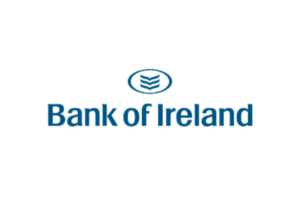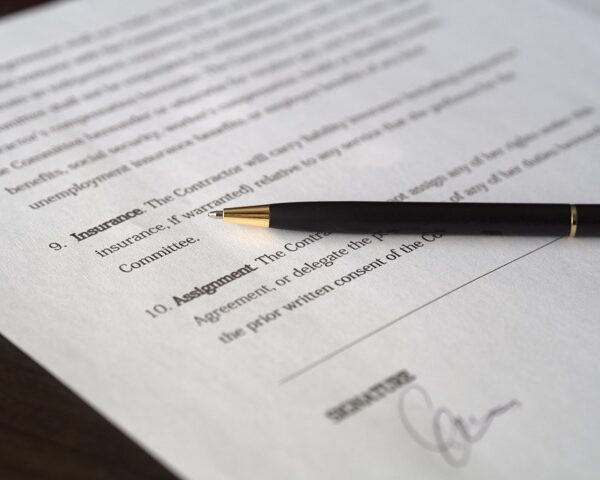Director's Personal Guarantee
Expert Solicitors provide Independent Legal Advice for Director’s Personal Guarantee Agreement to satisfy your mortgage or lenders.

- from £140*
- Same-day Appointments
- Online or In Person Consultations
- Fast Turnaround Time
- ILA Certificate Included
- Law Firms Approved by Most Lenders




















Director's Personal Guarantee
In circumstances where Independent Legal Advice (ILA) is required, you will usually be agreeing to either take on some form of liability or waive some of your rights but without necessarily enjoying any direct personal benefit for doing so. It is therefore imperative that you fully understand the implications and seek appropriate professional guidance.
By providing the advice, our goal is to protect our clients from signing any document before understanding the risks of the transaction. Once the advice and paperwork has been given, our senior independent solicitors will sign an Independent Legal Advice Certificate confirming that they have provided the relevant advice, followed by their client’s signature.

What is a Director's Personal Guarantee?

Personal guarantees by directors of a company.
A Director’s Personal Guarantee Agreement refers to a legal document in which a company director personally guarantees the repayment of a business loan or credit facility. This means that if the company fails to meet its financial obligations, the director becomes personally liable for the outstanding debt.
Personal Liability
The Director’s Personal Guarantee Agreement entails personal liability, where the director assumes individual responsibility for the company’s debts outlined in the guarantee agreement. In the event of the company defaulting on the loan, the director’s assets, such as property or savings, can be utilised to repay the outstanding debt. This arrangement is particularly common for small businesses or start-ups, providing lenders with increased confidence by mitigating the risks associated with lending to companies with limited credit history or financial stability.
Legal Document
This agreement is a formal legal document that outlines specific terms and conditions, including the maximum liability amount, interest rates, and repayment terms. The director must sign the agreement voluntarily, acknowledging their liability for the company’s debts. If the company defaults and the director fails to repay the guaranteed debt, the lender can take legal action to enforce the guarantee in court. Defaulting on a personal guarantee can significantly impact the director’s credit score and financial future.
Legal Implications
Some personal guarantee agreements have limitations, such as a clause capping the director’s liability to a specific amount. Additionally, lenders may recommend that the director seek independent legal advice before signing the guarantee, ensuring they fully understand the legal implications. Due to the serious financial and legal consequences, it’s crucial for directors to carefully consider the risks and consult with legal and financial advisors before agreeing to provide a personal guarantee.
Director's Personal Guarantee Reviews
What is the meaning of a personal guarantee?
- A personal guarantee is a legal commitment made by an individual to assume personal responsibility for a debt or financial obligation if a business or another party fails to fulfil its payment or contractual commitments.
In providing a personal guarantee, the individual, known as the guarantor, agrees to personally pay off the debt if the primary borrower defaults.
This agreement means that the guarantor’s assets, such as property or savings, can be utilised to repay the outstanding debt in the event of default.
Personal guarantees are often required by lenders to secure business loans, especially for small businesses or startups, as they provide a level of security for lenders, assuring them of repayment even if the business faces financial challenges.
Personal guarantees are legally binding documents and can be enforced in court. Therefore, guarantors should fully comprehend the legal implications and potential risks involved, often seeking legal advice before agreeing to provide a personal guarantee.

What are the risks of a personal guarantee?

Seek Independent Legal Advice
Entering into a personal guarantee involves significant financial and legal risks for the individual providing the guarantee.
One of the most substantial risks is the potential loss of personal assets. If the borrower defaults on the debt, the guarantor becomes personally liable, meaning their assets, such as property, savings, or investments, can be seized to repay the outstanding amount. This can lead to severe financial repercussions, including bankruptcy and loss of one’s home or other valuable possessions.
Credit Score
Another risk is the impact on the guarantor’s credit score.
A default on a personal guarantee can severely damage the guarantor’s creditworthiness, making it difficult to secure future loans or credit. Additionally, providing a personal guarantee can strain personal relationships, especially if the guarantor’s financial situation deteriorates due to the guarantee.
Responsibilities
Furthermore, personal guarantees often lack a liability limit. This means the guarantor might be responsible for the entire debt, including interest and fees, which can accumulate over time. Even if the business or borrower faces financial difficulties beyond the guarantor’s control, they are still legally obligated to repay the debt.
Binding
Lastly, personal guarantees might not be easily revoked. Once signed, they are typically binding contracts, making it challenging for guarantors to escape their obligations, even if circumstances change.
Given these risks, it is crucial for individuals to thoroughly assess the potential consequences and seek legal advice before agreeing to provide a personal guarantee, ensuring they fully understand the extent of their financial and legal obligations.
Is a personal guarantee enforceable?
A personal guarantee is enforceable in a court of law.
When an individual provides a personal guarantee for a debt or financial obligation, it establishes a legally binding contract between the guarantor and the lender or creditor.
In case the borrower fails to meet their obligations, the lender or creditor can take legal action to enforce the personal guarantee.
The process typically begins with the lender demanding payment from the guarantor as outlined in the terms of the personal guarantee agreement. If the guarantor does not fulfil the obligation, the lender can initiate legal proceedings, which usually involve filing a lawsuit.
If the court rules in favour of the lender, a judgment is issued against the guarantor, compelling them to repay the debt according to the specifications in the personal guarantee.
Once a judgment is obtained, the lender can take various legal measures, such as seizing assets or garnishing wages, to recover the owed amount.
It’s crucial to note that the enforceability of a personal guarantee may vary based on the terms specified in the agreement and the local legal regulations governing such contracts.
Therefore, individuals providing personal guarantees should carefully review the agreement terms and seek legal advice to comprehend their obligations and the potential consequences of default fully.

How it works
1.
Book free consultation
Choose a free consultation at a time that suits you. This will be booked directly with our trusted partner law firms.
2.
An approved panel solicitor will contact you at your preferred date and time to discuss your needs and requirements.
3.
We get to work to provide you with the required independent legal advice and aim to dispatch documents on the same day.
What are the risks if the company missed a mortgage repayment for a personal guarantee?
The company is required to meet all mortgage repayment deadlines on time. If however a payment is missed the lender can take action. The action taken by the lender depends on the terms of the agreement. However, they could include:
- Repayment of the missed mortgage payment
- Repayment of the whole debt or all possible losses
Personal Financial Liability
The guarantor becomes personally responsible for the missed mortgage repayment. The lender can pursue the guarantor’s assets, such as property, savings, or investments, to recover the outstanding amount.
Impact on Credit Score
The guarantor’s credit score can be severely affected. Late or missed payments can lead to a lower credit score, making it challenging to secure future loans or credit facilities. A damaged credit history can also affect personal financial opportunities and transactions.
Legal Consequences The lender can take legal action against the guarantor to enforce the personal guarantee. This may involve court proceedings, judgments, and potentially the seizure of personal assets to settle the debt.
Financial Stress Fulfilling the missed payment on behalf of the company can cause financial strain on the guarantor. It might lead to difficulties in meeting other personal financial obligations and impact their overall financial stability.
Strained Relationships
If the guarantor’s assets are seized or significant financial stress occurs due to the missed payment, it can strain personal relationships, especially if family members or close associates are involved in the business.
Limited Protections
Personal guarantees often lack a liability limit, making the guarantor responsible for the entire debt amount, including interest and fees. Limited legal protections might be available, depending on the jurisdiction and the specific terms of the personal guarantee.
Difficulty in Disputing the Guarantee
Once a personal guarantee is signed, it can be challenging to dispute its validity. Courts generally uphold validly executed guarantees, making it difficult for the guarantor to escape the obligation.

